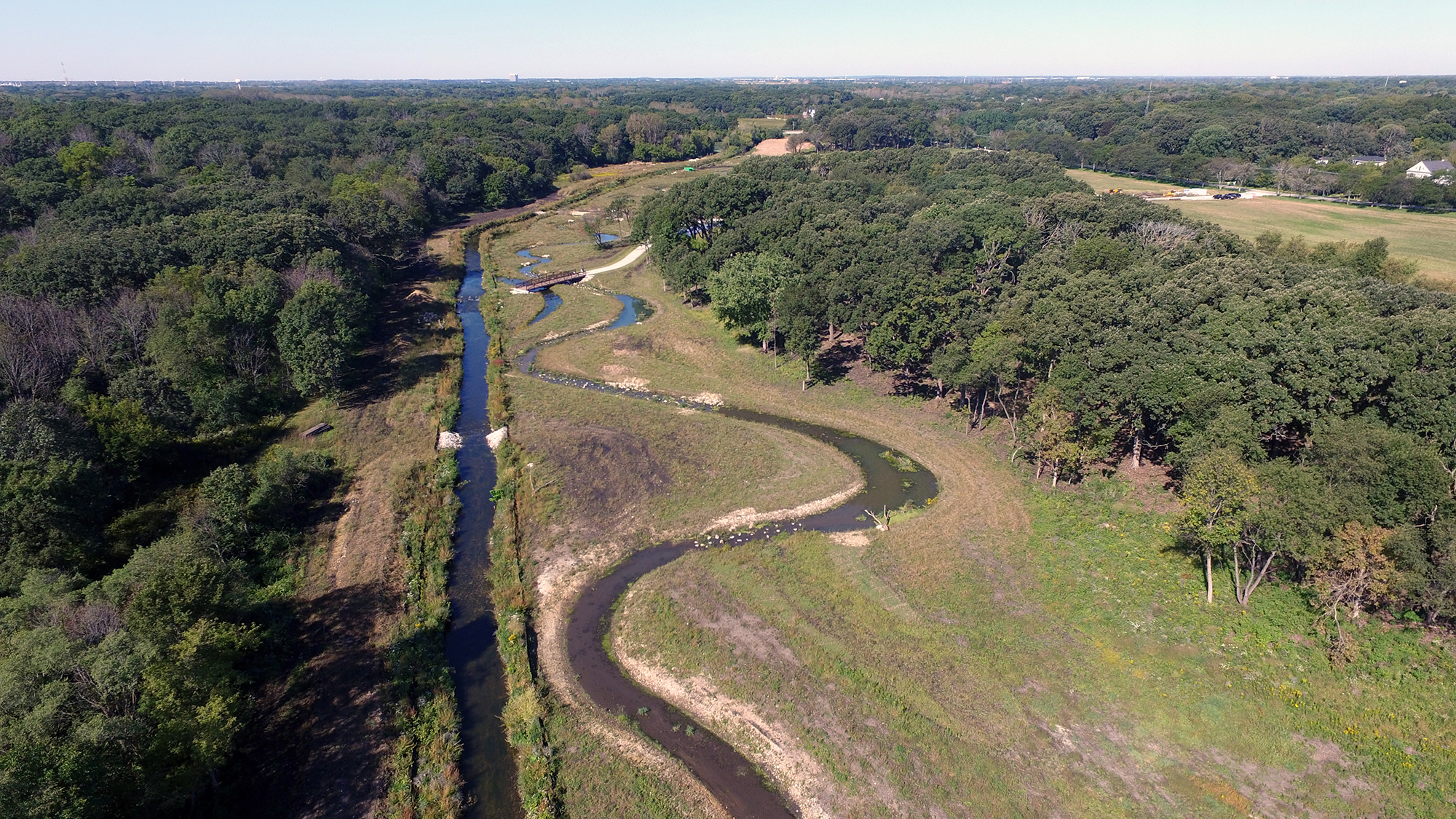Illinois Tollway

Recreational Trail Investments
Illinois Tollway

The Illinois Tollway works with local communities, county forest preserve districts, regulatory agencies, and other environmental groups to provide funding to restore and enhance prairies, woodlands, wetlands, and waterways. The investments by the Illinois Tollway's in recreational trails of approximately 1,000 miles of county forest preserve trails is one of the unsung benefits provided to communities surrounding the 294-mile system of five toll roads in Northern Illinois.
The trails benefit hikers, bikers, runners, horseback riders, bird-watchers, cross-country skiers, snowmobilers, and other outdoor enthusiasts living in the Chicago region's urban and suburban environments. The trails frequently link the forest preserves to longer, regional, statewide, and multi-state trails. Bike trails also serve as an alternative transportation mode for some commuters, enhancing the regional transportation network.
As part of the Tollway's commitment to sustainability – from planning and design through construction, maintenance and operations – agency funds are invested in mitigation projects to offset the impacts of roadway construction on local and regional natural resources.
Last year, the Illinois Tollway began participating in the second phase of a large-scale project to help restore Spring Brook Creek, which runs through the St. James Farm Forest Preserve in DuPage County. The first phase, completed in 2015, reconfigured the creek to replicate a more natural, meaning stream. Phase Two of the project will improve habitat and water quality along approximately a 2-mile section of creek, creating better conditions for wildlife. The project also includes relocating the West Branch DuPage River Trail out of a floodplain, improving visitors' views of the surrounding prairies, wetlands, and woodlands. Restoration work on the second phase began in spring 2019 and is scheduled to be complete in 2021.
This project and other efforts are improving quality of life, enhancing the environment, and connecting people to nature. You can learn more here about the Tollway’s sustainability efforts.




